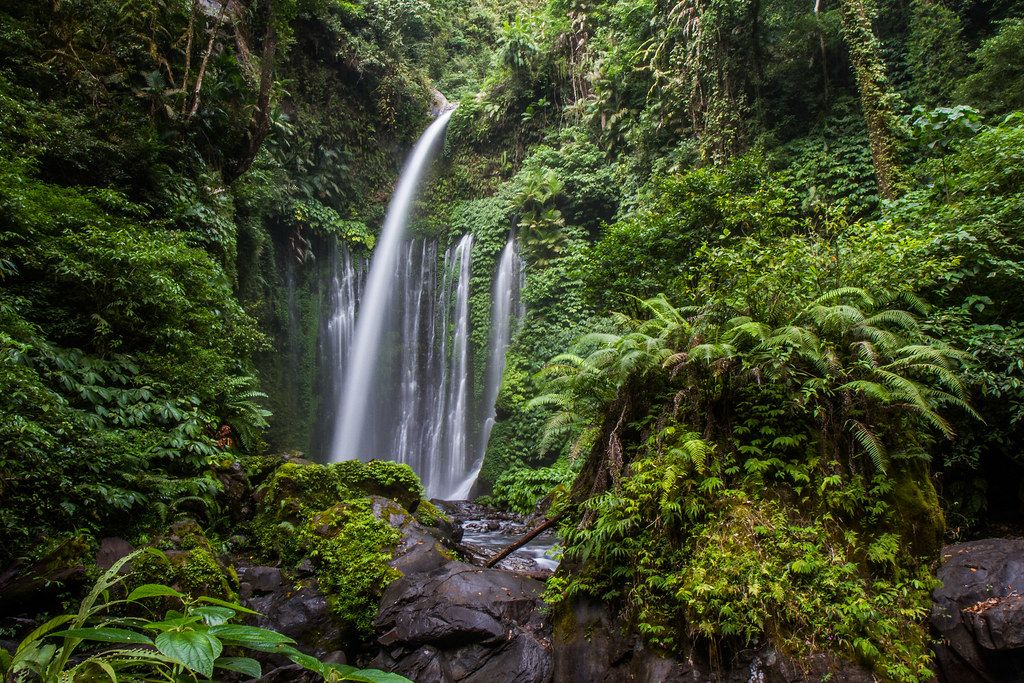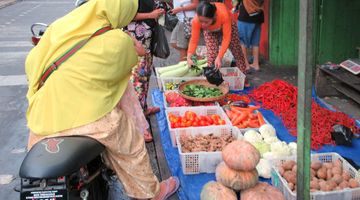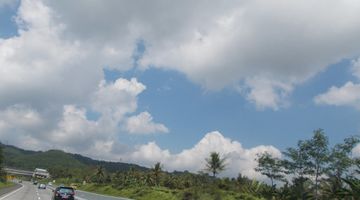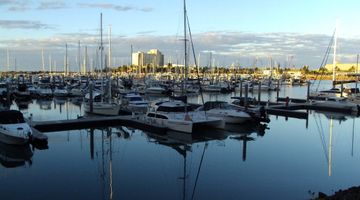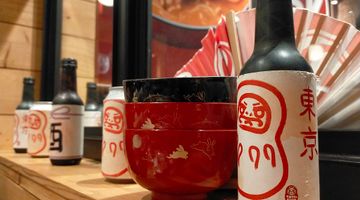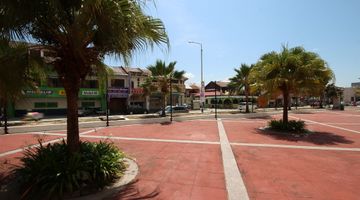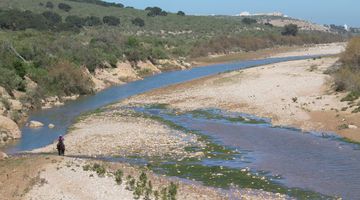Safe Travel in Indonesia – Best Travelling Tips
News readers are all too familiar with the frequent, fiery volcanic eruptions that occur throughout Indonesia and unfortunately the country seems to encounter an unfortunate abundance of terrifying natural disasters such as devastating tsunamis and earthquakes. There is also the occasional headline that reaches the masses where Indonesia is accused of crime, corruption, plane crashes and even terrorism. This sounds disastrous. It’s not. Compared with many other places in the world, travelling in and around Indonesia is actually fairly safe especially if visitors remain careful and take the necessary safety precautions. Indonesians are known worldwide for their gentle, non-violent demeanour and friendly and welcoming dispositions; and very few travellers run into trouble while exploring the coral-fringed coastlines and lush, jungle-clad rainforests.
Natural disasters
As mentioned, there is a large smattering of volcanic islands along the Pacific Ring of Fire in Indonesia; and earthquakes, tsunamis and volcanic eruptions are all too common and frequent along this strip of paradise. Truthfully, there is not a great deal that travellers can do to ensure complete avoidance of these dangers and risks. Those who are concerned should from keep an eye on the news, acquaint themselves with Indonesia’s natural disaster warning signs and pay special attention to escape routes in hotels, attractions and tourist sights.
Crime in Indonesia
Crime is very seldom violent in Indonesia with firearms being extremely uncommon. Despite this, petty crime in Indonesia has increased in recent years perhaps as a result of a high influx in tourism with theft being the most reported incidence of crime. Thievery is mostly pick-pocketing in busy areas (markets, nightclubs, public transport, ferries etc.), bag-snatching off motorbikes, theft from hotel rooms and stealing laptops and cellphones from Internet hotspot areas. This theft mostly occurs in Indonesia’s densely populated, city areas; and travellers need to remain as vigilant as they would in any other unfamiliar urban surroundings.
Travel tips to avoid incidences of crime include, vigilance, caution, carrying and drawing as little cash as possible, not flashing any valuables and not accepting any unopened drinks from strangers.
It really should go without saying but, fellow travellers, no stealing on your end either, okay? Crime in Indonesia also goes both ways and tourists are obviously strongly warned against pulling any criminal stunts themselves. Many people will be all too familiar with the ‘Walk of Shame’ that two foreigners were forced to do across the island of Gili Trawangan after stealing two bicycles during their stay on the police-less island. The two Westerners were paraded around the island with cardboard signs around their necks stating, “I am a thief! Don’t do what I did!” in an attempt to teach them a lesson and discourage other visitors from doing the same. Crickey, no one wants to become famous on social media for that.
Alcohol
Along with not accepting unopened drinks from strangers, travellers should also avoid purchasing and consuming arak outside of a reputable accommodation or restaurant. Arak is a natively made fermented alcohol made from rice or palm. Reports of alcohol poisoning, injuries and even deaths have been reported when ruthless and dishonest vendors attempt stretching their stock by adding poisonous and dangerous chemicals to the bottles of alcohol.
For the die-hard, party animals that flock to Kuta’s shores with every intention of club-hopping, dancing and clubbing until the early hours of the morning, it’s important to be as cautious and careful as possible so as to avoid misfortune and misadventure.
Being intoxicated in one of Kuta’s nightclubs can lead to dangerous incidences, such as fighting, acts of violence, drinks being spiked, getting robbed and drunken motorbike accidents. No one wants to include full-body gravel burn, broken bones or worse, on their adventure to Indonesia. In order to avoid this as far as possible, do not ride or get onto a motorbike or even motorbike taxi when inebriated. You can also kiss your travel insurance goodbye if you make a claim as a result of drunk driving. It pays to remember that the roads are also no softer here in Indo than they are at home, so please please please put on a helmet when driving around during the daytime.
Death penalty
Upon arrival at Indonesia’s airports travellers are greeted with an ominous ‘DEATH TO DRUG TRAFFICKERS’ sign; and any and all drug offenses throughout the country are dealt with extremely gravely. In fact, the death penalty for drug trafficking is mandatory for both locals and foreigners. Indonesia has clearly exhibited a zero-tolerance policy to drugs with a succession of high-profile arrests and convictions splashed across headlines worldwide. If you thought that that was bad enough – Indonesia’s death penalty is execution by firing squad. Gulp. The Indonesian drug laws are harsh and unforgiving and they do not differentiate between a backpack filled with cocaine and a wallet with a single marijuana joint inside. It’s just not worth it, kids. Don’t do it.
Keep in mind that nightclubs and even private parties get raided randomly and police officials can force anyone suspicious to take a compulsory urine test to test for drugs. Also, entrapment shenanigans occur occasionally too – beware, that your ‘dealer’ may in fact be an undercover cop.
Scams
-
Beware of the classic Southeast-Asian ‘no meter taxi scam’. Do not get into a taxi without agreeing that the meter will run or without agreeing on a fixed price. Occasionally taxi drivers will skyrocket the fee once you are inside the vehicle and insist that you pay.
-
While not forceful or rude, officials are infamous for asking for vaguely disguised bribes or tips that are cheerfully referred to as ‘gifts’ or in Indonesian, uang kopi or uang rokok. These words quite literally translates to "coffee money" and "cigarette money". Feigning understanding, big smiles and a confused attitude will usually get you out of paying this ‘fee’. Although being the poor country that it is and with officials having very meagre salaries, occasionally turning a blind eye and paying these small fees isn’t really the end of the world.
-
Beware of shady characters and smooth-talking touts who loiter outside bus stations or near taxi drop-off points who insist on showing you to the ‘best accommodation’ all so that they can get a commission cut. As with all foreign interactions, use your common sense and trust your gut.
-
Check your change when purchasing tickets or buying items at bustling markets. Short-changing travellers, especially in hurried and lively environments occurs all too frequently in Indonesia.
Health issues
Travellers are advised to use mosquito repellents, sleep under mosquito nets and to take malaria prophylaxis if travelling to remote areas in Indonesia such as Lombok, Sumatra or Borneo. Dengue Fever also occurs and mosquito repellents and wearing long sleeves will help with this too. This is not really necessary if travelling only to Java or Bali unless you wish to be uber-cautious. Hepatitis is also recommended before arriving in Indonesia just to be on the safe side.
Due to the questionable standards of food hygiene, especially street food, getting vaccinated against Hepatitis A and even typhoid fever is advisable. Bringing along electrolytes and diarrhoea medication is also a good idea for those who wish to err on the side of caution when travelling.
For travellers who suffer with asthma and other respiratory ailments, bring along your inhaler and meds as the air quality in Indonesia can be rather poor and polluted. Indonesia also suffers from seasonal haze that occurs from June until October when the lands of palm plantations are cleared by burning the trees down.
Level of medical care in Indonesia
Although the level of medical care in Indonesia has improved in recent years it still a far cry from the standards of western medicine and the facilities and training of western hospitals. For travellers with minor medical issues, a short-term stay in an Indonesian hospital or clinic will be just fine and but for any major or critical medical emergencies travellers should opt for an international hospital. It is also very likely that travellers will encounter a language barrier when visiting a doctor as many Indonesians speak very little English unless in one of the major cities.
For everyday medical complaints such as traveller’s diarrhoea, food positioning, sunstroke or any other minor aches and pains; visitors can pop into any apotek (pharmacy) or visit a doktor that works in one of the many walk-in clinics (open usually from 4pm onwards), although you may wait awhile to be seen to. It may also be helpful to know that there are polikliniki (clinics) in the majority of hospitals too that are usually open from (8am to 4pm). These clinics can often be cheaper than doctor’s bills in the main hospital although paying in advance before being treated is the expected protocol.
Emergency number
In case of a serious medical emergency, travellers should call the SOS-AEA Indonesia, 24-hour emergency line: +62 21 7506001. Although significantly more expensive, these hospitals specialise in treating foreigners and always have English speaking staff on duty.
Travel Insurance
Travel insurance is strongly advised for those travelling to Indonesia especially for those who plan on doing risky, adventurous sports such as mountain trekking, volcano climbing and diving. Please note that many travel insurance policies do not cover motorbike accidents for travellers of any Southeast Asian countries due to the high accident rate, poor road rules and standard reckless driving. Very often travel insurance also doesn’t cover any injury or misfortune that occurs as a result of being intoxicated.
Lastly, without wanting to sound like your mother, we highly recommend that your travel insurance includes a medical evacuation back to your home country in case of an emergency.
Pre-existing conditions
For travellers who already have a pre-existing medical condition, you’ll need to bring along your prescription medication inside the container that it originally comes in. Better yet, bring along the doctor’s prescription too. This will save time and hassle should you get stopped and questioned. It’ll also help to get a refill at a pharmacy or doctor should you need to during your trip as the doctor or pharmacist can read some of the active ingredients.
Money
The currency used in Indonesia is the Indonesian Rupiah and travellers can either bring the currency with them from home before landing, or can choose to draw cash upon arrival. Cash is the easiest and best form of payment for those travelling in Indonesia although we’d recommend drawing smaller amounts at a time in case of pick-pocketing. The majority of resorts and hotels will accept credit cards but generally cash is only accepted at smaller accommodations like homestays or guesthouses.
ATMS
Fortunately ATMS in Indonesia, especially in the main tourist destinations, are common and travellers will have little trouble drawing local currency with their Mastercard or Visa credit or debit cards from home.
Money-changers
For travellers wishing to exchange their money for Indonesian Rupiah, you have several options.
Money-changers can be found throughout the island and will generally give you the best rate. Money-changers are open from around 9am until 10pm.
Banks will offer you the next best rate but will require standing in lines and the trouble of locating a bank.
Your last option is to change your money at a hotel. The only real perk of this alternative is the sheer convenience but due to hotels offering a significantly worse rate, it’s best to skip this option altogether if possible.

